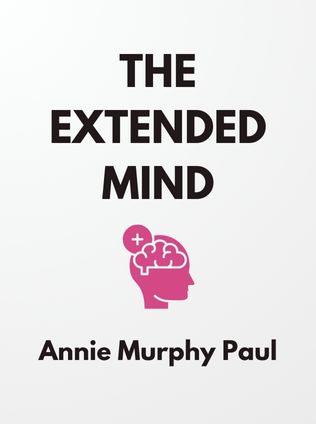
The Extended Mind
The Power of Thinking Outside the Brain
By Annie Murphy Paul
Published 06/2021
About the Author
Annie Murphy Paul is a distinguished science writer, renowned for her insightful explorations into the realms of cognition, learning, and the extended mind. With a background that seamlessly blends scientific research with accessible storytelling, Paul has made a significant impact on how we understand the mind's capacity to extend beyond the confines of our brain. Her work often illuminates the intricate ways in which our cognitive abilities are shaped and enhanced by our interactions with the physical world, our bodies, and other people.
Paul's writing is characterized by a deep understanding of the science of learning and an ability to translate complex concepts into engaging and relatable narratives. Her previous works, including "Origins: How the Nine Months Before Birth Shape the Rest of Our Lives" and "The Cult of Personality Testing," have garnered critical acclaim for their depth of research and clarity of thought. In The Extended Mind, Paul delves into the groundbreaking idea that intelligence is not solely a product of the brain's internal processes but is significantly influenced by our external environment and the tools we use to navigate it.
Main Idea
The central thesis of The Extended Mind is a paradigm shift in how we understand intelligence and cognition. Paul argues that the mind is not confined to the brain but extends into the world through our use of physical objects, our bodies, and our social interactions. This concept challenges the traditional notion that intelligence is a fixed trait, determined solely by our neurobiology. Instead, Paul posits that by effectively engaging with our external environment, we can enhance our cognitive abilities and achieve greater mental acuity.
Drawing on a wealth of scientific research, Paul explores how our brains evolved in a world that was vastly different from the one we live in today. Our ancestors thrived in environments that required constant interaction with the physical world, whether through movement, tool use, or social cooperation. Modern society, however, often isolates us from these natural interactions, leading to a mismatch between our biological needs and our daily experiences. Paul argues that by realigning our cognitive strategies with our evolutionary biology, we can unlock our full mental potential.
Table of Contents
- Introduction: Rethinking Intelligence
- Part I: Thinking with Our Bodies
- Chapter 1: The Power of Movement
- Chapter 2: The Wisdom of the Body
- Chapter 3: The Mindful Body
- Part II: Thinking with Our Surroundings
- Chapter 4: The Cognitive Impact of Space
- Chapter 5: Tools for Thought
- Chapter 6: The Natural World as a Cognitive Resource
- Part III: Thinking with Our Relationships
- Chapter 7: The Social Mind
- Chapter 8: Learning from Others
- Chapter 9: The Collective Brain
- Conclusion: Embracing the Extended Mind
Introduction: Rethinking Intelligence
In the introduction to The Extended Mind, Paul sets the stage for a radical rethinking of what it means to be intelligent. She challenges the traditional view that intelligence is an innate quality, confined to the workings of the brain. Instead, she introduces the concept of the extended mind, where intelligence is seen as a dynamic process that involves not just the brain, but also the body, the physical environment, and social interactions.
Sign up for FREE and get access to 1,400+ books summaries.
You May Also Like
The Subtle Art of Not Giving a F*ck
A Counterintuitive Approach to Living a Good Life
By Mark MansonRich Dad Poor Dad
What the Rich Teach Their Kids About Money - That the Poor and Middle Class Do Not!
By Robert T. KiyosakiHow To Win Friends and Influence People
The All-Time Classic Manual Of People Skills
By Dale CarnegieFreakonomics
A Rogue Economist Explores the Hidden Side of Everything
By Steven D. Levitt and Stephen J. Dubner



















